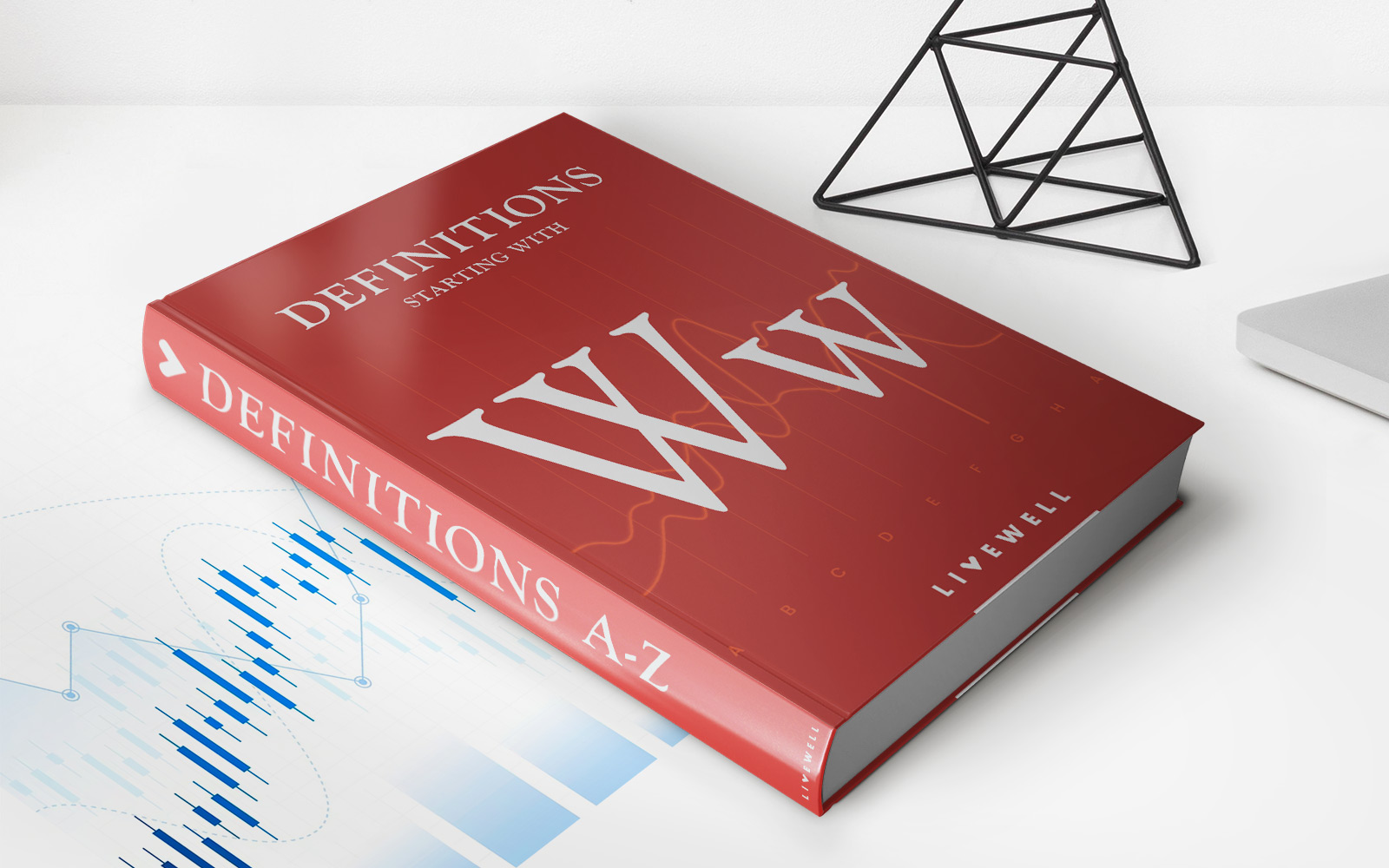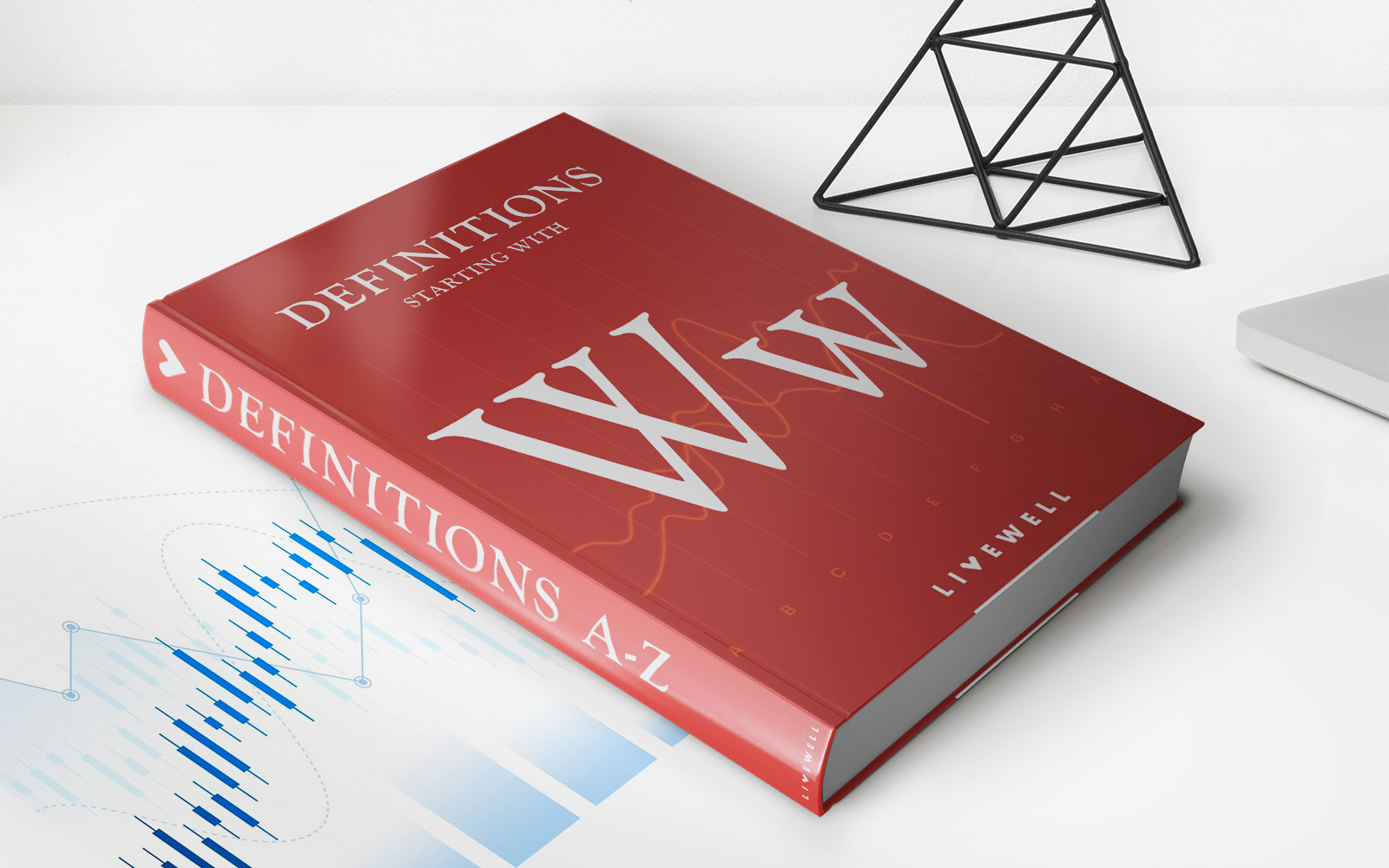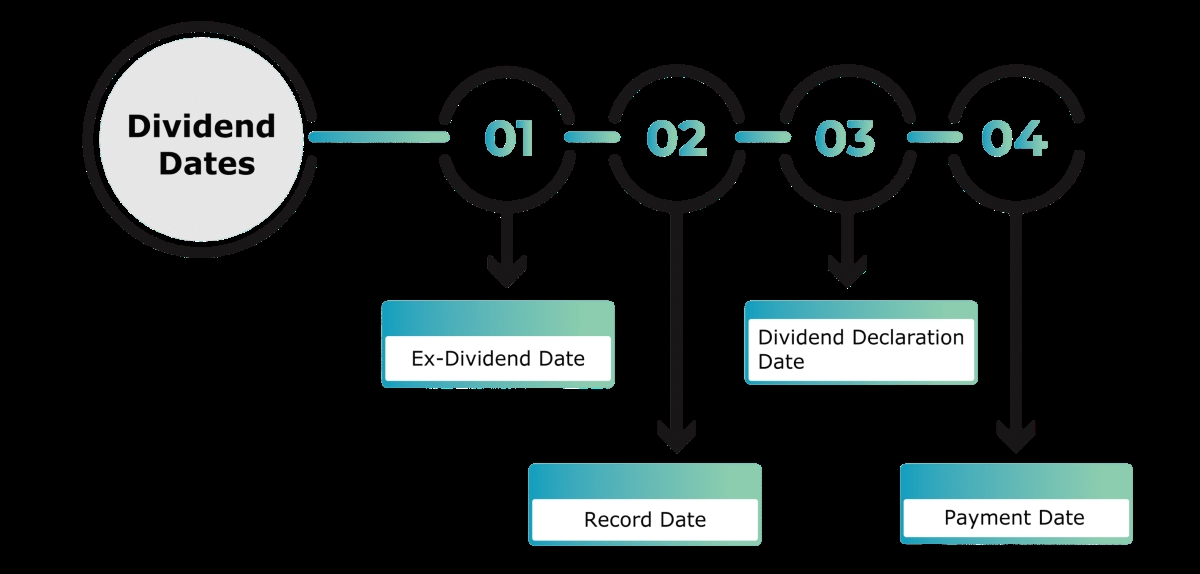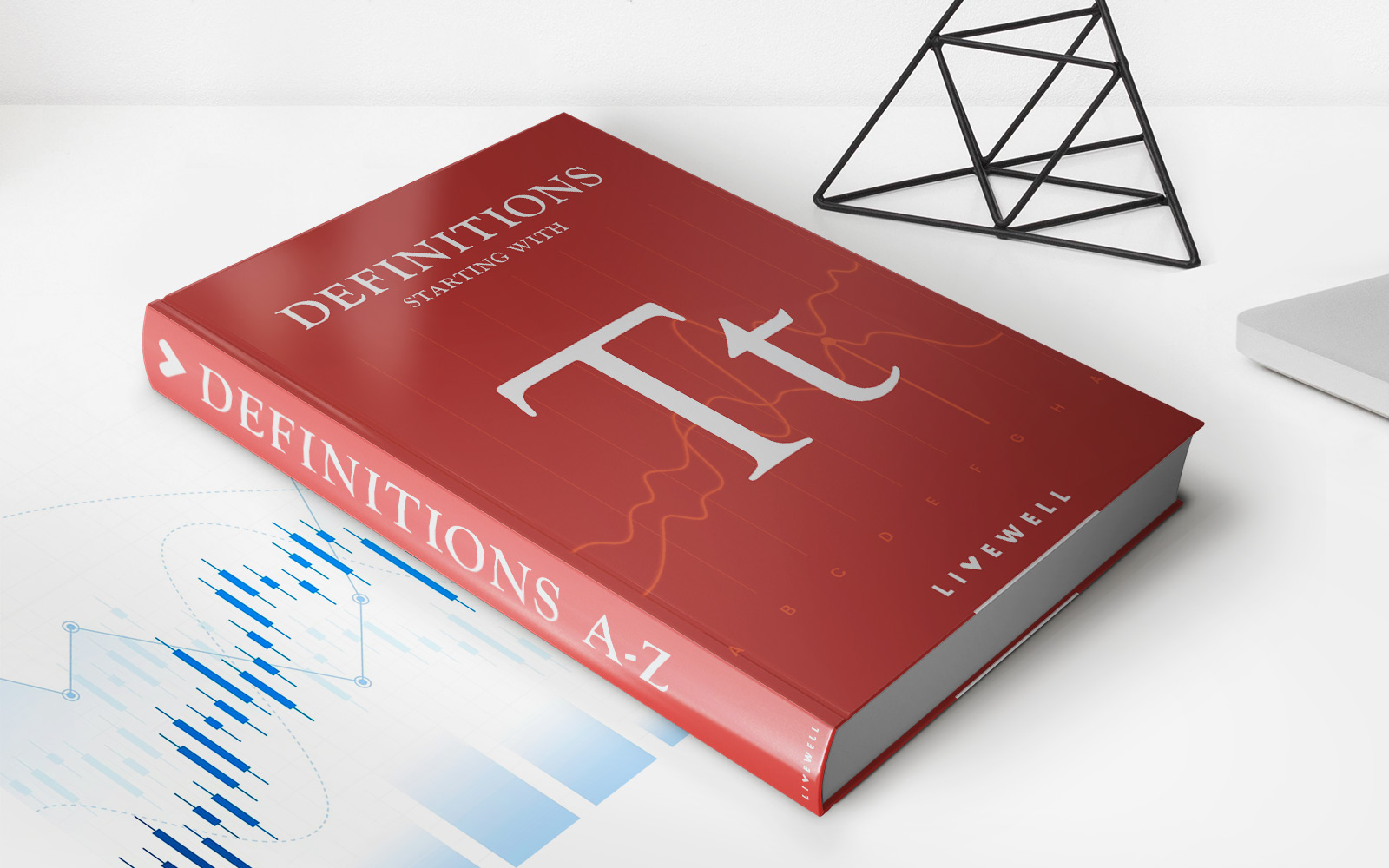

Finance
What Is A Widow Pension
Published: November 27, 2023
Discover what a widow pension is and how it can provide financial support after the loss of a spouse. Find out more about widow pensions and their importance in finance.
(Many of the links in this article redirect to a specific reviewed product. Your purchase of these products through affiliate links helps to generate commission for LiveWell, at no extra cost. Learn more)
Table of Contents
Introduction
Losing a spouse is an emotional and challenging experience. In addition to dealing with the grief and personal loss, widows often face financial hardships and uncertainty about their future. To provide some level of support and stability, many countries have established widow pension programs.
A widow pension, also known as a widow’s benefit or survivor’s pension, is a monetary allowance provided to eligible widows after the death of their spouse. This financial assistance is designed to help alleviate some of the financial burdens that may arise from the loss of a partner.
While the specific details of widow pension programs vary from country to country, their primary objective is to ensure that the surviving spouse can maintain a certain standard of living and meet their basic needs. Widow pensions may serve as a bridge to financial independence, providing a source of income until the widow can secure other means of support.
Widow pensions often come with certain eligibility criteria and requirements that must be met in order to receive the benefit. These criteria may include factors such as the age of the widow, the length of the marriage, the income level of the deceased spouse, and sometimes even the presence of dependent children.
Understanding the eligibility criteria, application process, calculation of benefits, duration, renewal, and additional benefits of a widow pension program is crucial for those who may be eligible for this type of support. By navigating the available resources and government programs, widows can gain a sense of financial stability and stability during a difficult period in their lives.
In this article, we will delve deeper into the various aspects of widow pension programs, providing valuable information and guidance for those seeking assistance after the loss of a spouse.
Definition of Widow Pension
A widow pension, also known as a widow’s benefit or survivor’s pension, is a financial assistance program provided to widows after the death of their spouse. This program aims to provide a stable income source to help cover living expenses and maintain a certain standard of living. It is typically offered by the government or social security agencies and varies in terms of eligibility criteria, benefits, and application processes.
The widow pension is intended to support widows who may be at a vulnerable financial stage due to the loss of their spouse. It helps to address any financial gaps that may arise from the absence of the deceased spouse’s income. The amount of the pension depends on factors such as the income of the deceased spouse, the length of the marriage, and the country’s specific pension scheme.
Widow pensions serve as a lifeline for many widows, offering them financial stability and the means to meet their basic needs. Beyond providing income replacement, these programs often offer additional benefits such as healthcare coverage, housing assistance, or educational grants to support the widow in rebuilding her life.
It is important to note that widow pensions are typically temporary in nature and are meant to provide support during a certain period following the spouse’s death. The duration of the pension varies depending on the country and the specific circumstances of the widow. In some cases, the pension may continue until the widow remarries, while in others, it may be provided until a certain age or for a fixed period, such as five years.
It is essential for widows to understand the specific terms and conditions of the widow pension program in their country to determine their eligibility and the benefits they may be entitled to. Additional support programs may also be available to widows, such as counseling services or employment assistance, to help them navigate the challenges they may face after the loss of their spouse.
In the following sections, we will explore the eligibility criteria, application process, calculation of benefits, and other important aspects of the widow pension program in more detail.
Eligibility Criteria
Eligibility criteria for widow pension programs vary from country to country, as each government has its own set of rules and regulations. However, there are several common factors that are generally considered when determining eligibility for the benefit. It’s important for widows to understand these criteria to determine if they qualify for the program.
1. Age: The age of the widow is often a key factor in determining eligibility for a widow pension. Some countries have a minimum age requirement, while others may have different age thresholds based on the specific circumstances of the widow.
2. Marital Status: Widows are typically required to have been legally married to their deceased spouse at the time of their death. Some programs may also consider the duration of the marriage, requiring a minimum number of years of marriage for eligibility.
3. Income: The income of both the widow and the deceased spouse is often assessed to determine eligibility. Widow pension programs are generally designed to support those with limited financial means, so there may be income caps or limitations in place.
4. Dependent Children: In many cases, widows with dependent children are given priority for widow pension benefits. The number of dependent children and their ages may affect the amount of the pension or the duration of benefits.
5. Contributory Factors: Some countries consider additional factors such as the deceased spouse’s social security contributions or the cause of death when evaluating eligibility for the widow pension program.
It’s important to note that these criteria can differ significantly from one country to another. It’s recommended for widows to consult with government agencies or seek professional advice to determine their eligibility and understand the specific requirements of the widow pension program in their jurisdiction.
In the next section, we will discuss the application process for widow pension benefits and the necessary documentation that widows may need to provide.
Application Process
The application process for widow pension benefits varies depending on the country and the specific program in place. While the exact steps may differ, there are common elements and documentation requirements that widows should be prepared for when applying for the benefit.
1. Gather Required Documents: Widows should begin by collecting all necessary documentation, such as proof of marriage, death certificate of the spouse, identification documents for both the widow and the deceased spouse, and any additional documents specific to the program requirements. It’s important to ensure that all documents are in order and up to date.
2. Research Program Eligibility: Prior to submitting an application, widows should thoroughly research the eligibility criteria and requirements for the widow pension program in their country. This includes understanding the age requirements, income limits, and any other relevant factors that may affect eligibility.
3. Fill Out the Application: Widows will need to complete the application form provided by the government agency or social security office administering the widow pension program. This form will ask for personal details, financial information, and other relevant information. It’s essential to fill out the form accurately and completely.
4. Submit the Application: Once the application form is completed, it should be submitted along with all the required supporting documents to the appropriate government agency. Some countries may also provide the option to submit the application online through an official government portal.
5. Follow Up: After submitting the application, it’s advisable for widows to keep track of the application’s progress and follow up with the government agency if necessary. This could involve contacting the agency to inquire about the status of the application or if any additional information is required.
6. Await a Decision: The widow pension application process may take some time, as the government agency needs to review the application and verify the provided information. It’s important for widows to be patient and wait for a decision. If approved, the agency will communicate the details of the pension, including the amount and duration of the benefit.
It’s worth mentioning that some widow pension programs may have specific deadlines for application submission, while others may have open enrollment throughout the year. It’s crucial for widows to be aware of any timelines and submit their applications within the specified period.
In the next section, we will explore how the widow pension benefit is calculated, taking into account various factors such as income, age, and the deceased spouse’s contributions.
Calculation of Widow Pension
The calculation of widow pension benefits varies depending on several factors, including the country’s pension scheme, income of the deceased spouse, age of the widow, and the length of the marriage. Understanding how these factors are taken into account can help widows estimate the amount of pension they may be eligible to receive.
1. Income of the Deceased Spouse: In some countries, the widow’s pension is calculated based on a percentage of the deceased spouse’s income or the average earnings during their working years. Typically, the higher the income of the deceased spouse, the higher the potential widow pension benefit.
2. Age of the Widow: The age of the widow may also play a role in determining the amount of the pension. In some pension schemes, the pension increases with age, providing higher benefits for older widows.
3. Length of the Marriage: The duration of the marriage can affect the widow pension calculation as well. In some cases, a longer marriage may result in a higher pension benefit, while shorter marriages may be subject to reduced benefits or limitations.
4. Percentage Calculation: Widow pension benefits are often calculated as a percentage of the deceased spouse’s pension entitlement or as a fraction based on specific formulas. The exact percentage or formula varies between countries and pension schemes.
It is important to note that widow pension calculations can be complex and may involve additional factors or considerations specific to the particular program. Consulting with a government agency, social security office, or a financial advisor can provide more accurate information regarding the calculation of widow pension benefits in a specific jurisdiction.
Furthermore, widow pension benefits may be subject to adjustments or deductions based on the widow’s income, changes in marital status (such as remarriage), or other relevant factors outlined in the pension program’s rules and regulations.
It’s advisable for widows to ensure they have all the necessary documentation, including proof of income and marriage, when applying for a widow pension. This will help facilitate the accurate calculation of their benefit and ensure the process goes smoothly.
Next, we will explore the duration of widow pension benefits and any renewal processes that may be required to continue receiving the pension.
Duration and Renewal of Widow Pension
The duration of widow pension benefits and whether they are renewable or not depends on the specific rules and regulations of the pension program in place. It’s important for widows to understand the duration of their pension benefits to effectively plan for their financial future.
1. Fixed Duration: Some widow pension programs provide benefits for a fixed period of time. This could be a set number of years, typically ranging from five to ten years, or until the widow reaches a certain age, such as retirement age. Once the predetermined duration ends, the pension payments cease.
2. Until Remarriage: In certain cases, widow pension benefits may continue until the widow remarries. Upon remarriage, the pension payments may be discontinued or altered based on the rules of the pension program.
3. Lifetime Benefit: In some countries, widow pension benefits are provided for the lifetime of the widow, regardless of any changes in marital status or age. This ensures ongoing financial support for the widow, even in the long term.
Renewal processes for widow pension benefits also vary depending on the program. In some cases, it may be necessary for widows to reapply for the benefit after a certain period. This typically involves submitting updated documentation and proving continued eligibility based on the program’s criteria.
It is important for widows to be aware of any renewal requirements and deadlines to avoid any interruption in the receipt of their pension benefits. Keeping track of renewal dates and proactively fulfilling the necessary obligations ensures a smooth continuation of the pension payments.
In the event of remarriage or any other changes in circumstances that may affect eligibility, widows should inform the relevant government agency or social security office promptly. Failure to do so may result in penalties or cessation of the pension benefits if they are no longer eligible under the new circumstances.
Understanding the duration and renewal processes of the widow pension program is crucial for widows to effectively plan their finances and ensure a stable source of income in the aftermath of their spouse’s death. Additionally, widows should stay informed about any changes or updates to the pension program that may impact their benefits.
In the next section, we will discuss additional benefits and support that may be available to widows in conjunction with the widow pension program.
Additional Benefits and Support
In addition to the widow pension itself, many countries provide additional benefits and support programs to assist widows in various aspects of their lives. These benefits and support systems are designed to offer holistic support during a challenging time and help widows rebuild their lives and maintain a certain quality of life.
1. Healthcare Coverage: Widows may be eligible for healthcare coverage through the widow pension program or other social security schemes. This can help alleviate the financial burden of medical expenses and ensure access to necessary healthcare services.
2. Housing Assistance: Some countries provide housing assistance programs specifically for widows. This can include rental subsidies, low-income housing options, or priority placement on housing lists. These benefits aim to provide stable and affordable housing for widows and their families.
3. Educational Grants: Widows with dependent children may be eligible for educational grants or scholarships to support their children’s education. These programs help ensure that the loss of a spouse does not hinder the educational opportunities of the widow’s children.
4. Counseling and Support Services: Many widow pension programs offer counseling and support services to widows. These services can provide emotional support, grief counseling, and assistance in navigating the various challenges that arise after the loss of a spouse. Support groups and community resources may also be available to help widows connect with others who can provide guidance and understanding.
5. Employment Assistance: Some programs provide employment assistance and training to help widows reenter the workforce or develop new skills for career advancement. This support can include job placement services, vocational training programs, or entrepreneurial support for those interested in starting their own businesses.
It’s crucial for widows to research and understand the additional benefits and support options available in their country. This knowledge can help widows access the resources they need to enhance their overall well-being and rebuild their lives after experiencing the loss of a spouse.
Widow pension programs are designed to provide a basic level of financial support, but these additional benefits and support services offer a more comprehensive safety net. Widows are encouraged to explore these resources and take advantage of the assistance available to them.
In the following section, we will address some commonly asked questions about widow pension programs to provide further clarity and understanding.
Frequently Asked Questions
1. Can I receive a widow pension if I was not legally married to my partner?
The eligibility for the widow pension program usually requires a legal marriage between the widow and the deceased spouse. However, there may be certain exceptions or alternative benefits available for common-law or domestic partners. It is advisable to consult with the government agency or social security office in your country to determine your eligibility.
2. Can I receive widow pension benefits if my spouse died many years ago?
Some widow pension programs have a time limit within which you must apply for benefits after the death of your spouse. However, in certain cases, there may be provisions for retroactive payments to cover the period between the spouse’s death and the application. It is best to inquire with the relevant authorities to understand the specific regulations in your country.
3. Can I receive other forms of income while receiving a widow pension?
The rules regarding additional income while receiving a widow pension vary by country and program. In some cases, there may be income limits or restrictions on the types of income that can be earned without affecting the pension. It is important to review the guidelines of your specific program to understand how additional income may impact your widow pension benefits.
4. What happens if I remarry after receiving widow pension benefits?
Remarrying may impact your eligibility for widow pension benefits in some programs. In many cases, once you remarry, the pension benefits will cease. However, there may be exceptions or alternative benefits available depending on the rules of the pension program in your country. It is advisable to consult with the relevant agency to understand the specific regulations that apply to your situation.
5. Can I receive widow pension benefits if I live outside the country where my deceased spouse was employed or the pension scheme is based?
Widow pension benefits are typically based on the pension scheme of the country where the deceased spouse was employed. Each country may have different rules regarding the eligibility of widows residing outside the country. It is recommended to contact the relevant government agency or social security office to inquire about the specific provisions for widows living abroad.
It is important to note that these answers are general in nature, and specific regulations may vary by country. To ensure accurate information, it is recommended to consult with the appropriate government authorities or seek professional advice regarding your eligibility and entitlement to widow pension benefits.
Next, we will conclude the article and summarize the key points discussed.
Conclusion
Widow pension programs play a vital role in providing financial support and stability to widows during a challenging period in their lives. These programs aim to ensure that widows can maintain a certain standard of living and meet their basic needs after the loss of their spouse.
Understanding the eligibility criteria, application process, calculation of benefits, duration, renewal requirements, and additional support available is crucial for widows seeking assistance through the widow pension program. It is recommended to thoroughly research and familiarize oneself with the specific regulations and guidelines established by the government authorities in their country.
Widow pensions are calculated based on factors such as the income of the deceased spouse, age of the widow, and length of the marriage. The amount and duration of the pension may vary depending on the specific program and country. It is important for widows to gather the necessary documentation and fulfill any renewal requirements to ensure the uninterrupted receipt of pension benefits.
In addition to the widow pension itself, many countries provide additional benefits and support services such as healthcare coverage, housing assistance, educational grants, counseling, and employment assistance. These programs aim to provide comprehensive support to widows as they navigate the challenges and rebuild their lives.
While this article has provided an overview of widow pension programs, it is essential to consult with the relevant government agencies or seek professional advice to obtain accurate and up-to-date information specific to your situation and location.
Remember, widow pension programs are designed to provide financial stability and support, assisting widows in their journey towards a secure and fulfilling future.
By understanding the available resources, navigating the application process, and accessing the benefits and support, widows can receive the assistance they need during this emotionally and financially challenging time.
In conclusion, the widow pension program serves as a crucial safety net, offering widows financial stability, additional benefits, and support to help them rebuild their lives and secure a brighter future after the loss of their spouse.














